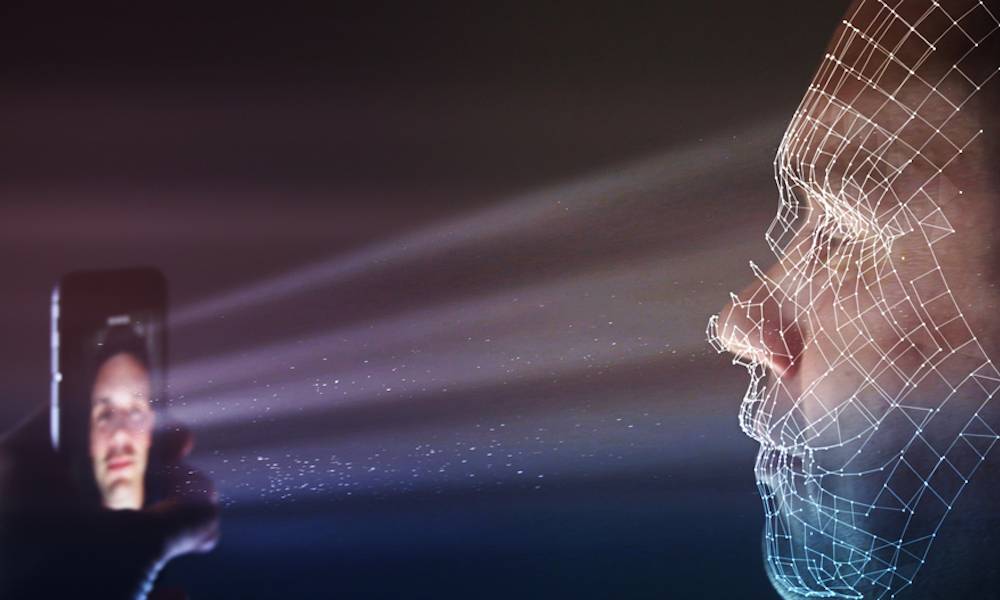Face ID Could Soon Be Coming to the Mac
 Credit: Sp3n / Shutterstock
Credit: Sp3n / ShutterstockToggle Dark Mode
Now that Apple has gone almost all-in on Face ID for its iPhone and iPad Pro lineup, the company may be preparing to bring the unique and secure authentication method to its next major product family: the Mac, if recent patent filings are any indication.
A new patent unearthed today by Patently Apple from the European Patent Office is not only resurrecting the idea of a Touch Bar on Apple’s Magic Keyboard, but also for the first time making mention of “a facial detection sensor” that would be used in conjunction with the Touch Bar.
While there’s been speculation since 2017 that Apple could release a new version of its Magic Keyboard that would include the Touch Bar that was debuted on its higher-end MacBook Pros, but one question that always remained is whether such a design would also incorporate the Touch ID feature, and if so, what the security ramifications would be of having a Touch ID sensor — and accompanying T1/T2 chip — that wasn’t physically integrated with the Mac in question. While almost all of Apple’s currently laptops are able to benefit from Touch ID, Apple’s iMac and Mac Mini have been left out in the cold for this reason.
Now it seems like Apple may be bypassing that question entirely by instead simply incorporating Face ID into those Macs that otherwise use an external keyboard. What’s interesting, however, is that in this particular patent application, Apple does not appear to be using the TrueDepth camera and 3D mapping technology found in its iPhone and iPad devices, but instead may be looking toward designing a retina scanner. Patent claim #87 specifically notes “wherein the biometric sensor is a retina scanner.”
Of course, this could also simply be a matter of Apple applying for a wider-reaching patent to cover all of the different technological possibilities in order to both open up future advances and of course to stave off patent litigation from other companies.
That said, retina scans are a well-established technology used in higher-end security systems, and could arguably be more reliable than Apple’s Face ID — which has been fooled in the past, usually by twins or close family members.
In addition to the new discovery, Patently Apple also notes that the number of patent claims in the application has grown from the original 12 back in the original 2017 to a whopping 106 in the continuation application. This suggests Apple is covering a lot more detail now, and may also be an indication of something getting closer to release.
Although we’re a bit skeptical about the inclusion of a Touch Bar in the Magic Keyboard — even an OLED screen will decrease battery life, and we’re still on the fence about how useful the feature actually is — Apple is preparing to soon release a new modular Mac Pro along with its first Apple Display in years. Both of these devices would seem to be solid candidates to take advantage of new Face ID and Touch Bar technology, and even if the features aren’t unveiled this year, it wouldn’t surprise us if these are still part of Apple’s longer-term plans.
[The information provided in this article has NOT been confirmed by Apple and may be speculation. Provided details may not be factual. Take all rumors, tech or otherwise, with a grain of salt.]






